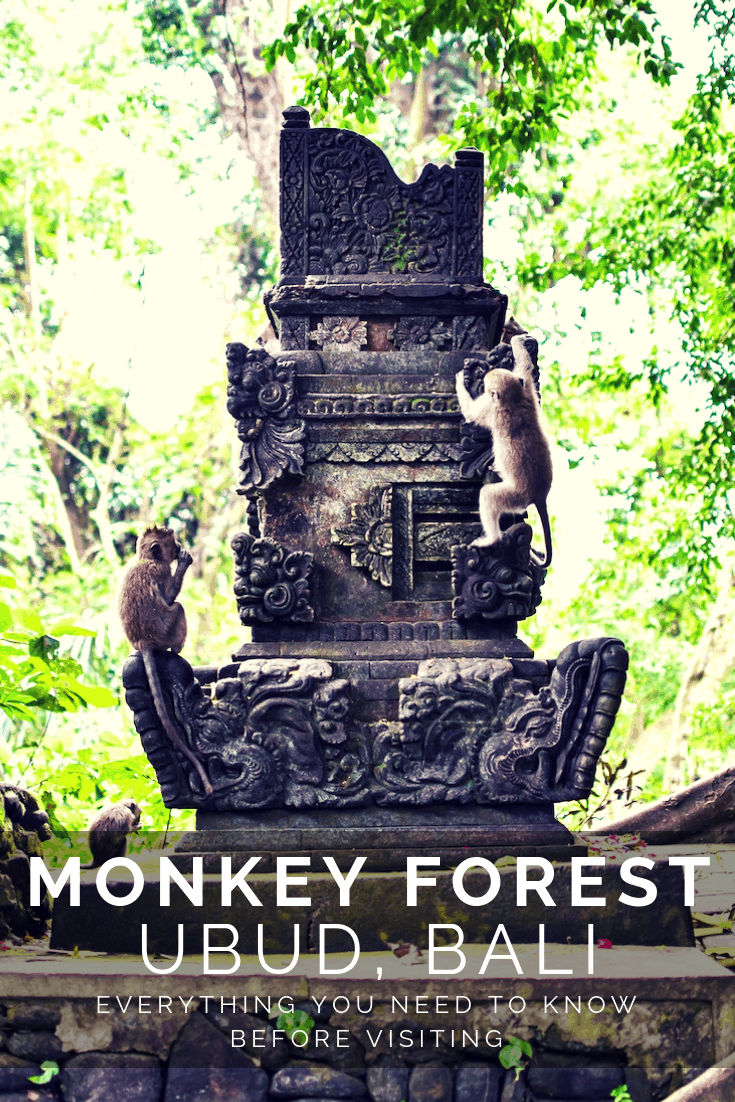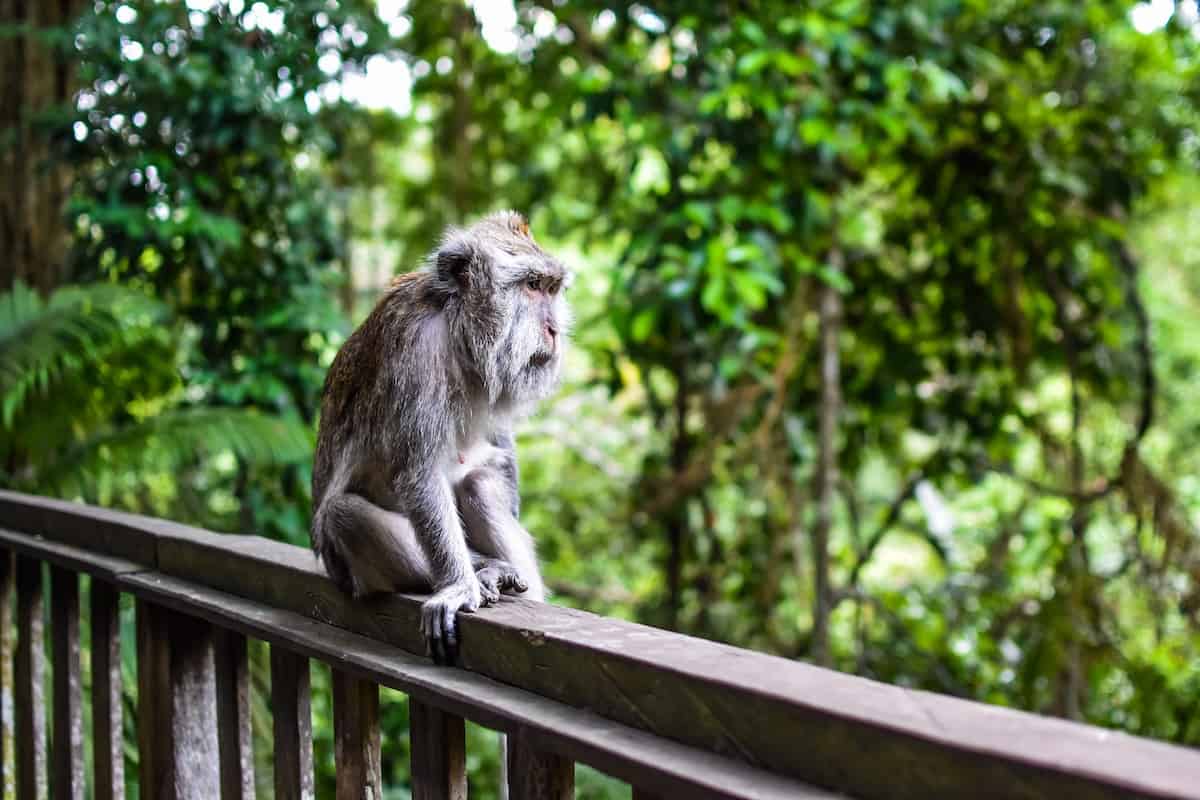Contents
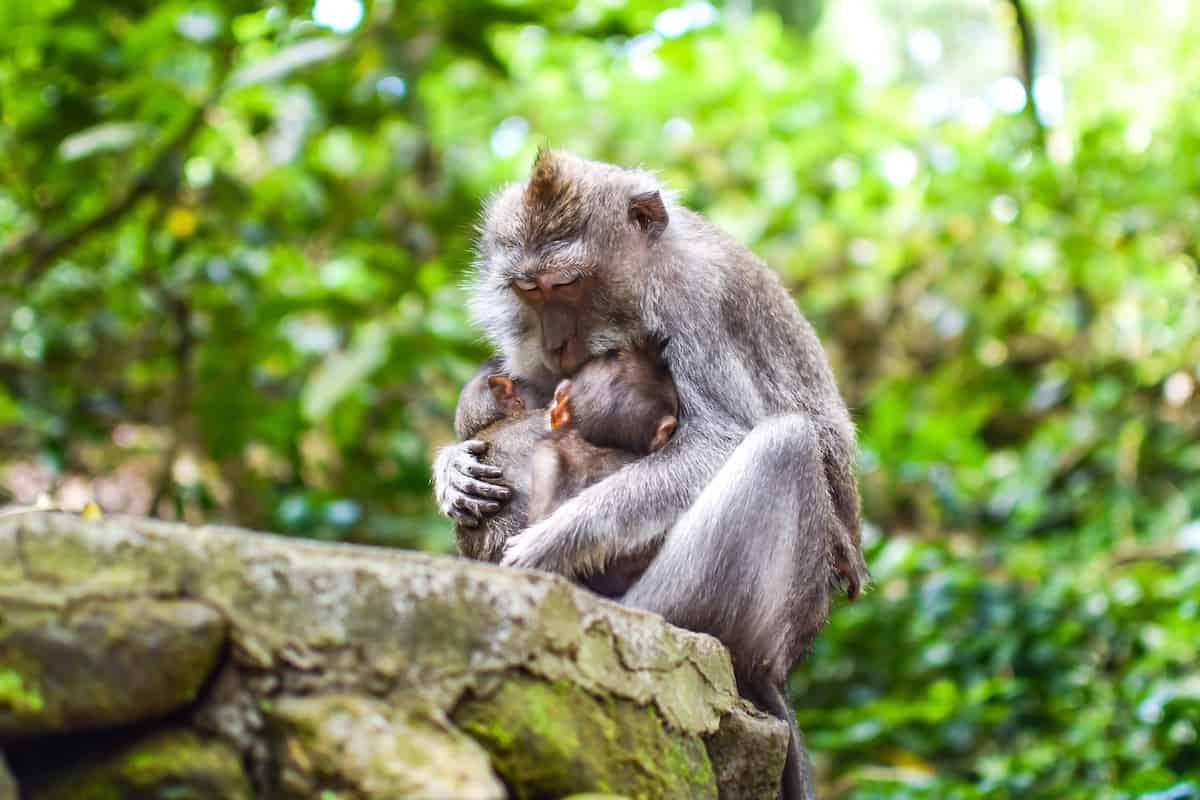
About the Ubud Monkey Forest
The Ubud Sacred Monkey Forest Sanctuary is about 12.5 hectares (30.8 acres) and currently home to hundreds of Balinese long-tailed monkeys, otherwise known as macaques. You can also find over 115 different species of trees, looming over the park and creating a mystical, jungle oasis. Some of the trees are considered holy by the locals and are used in various Balinese spiritual rituals. There are also three temples inside Ubud Monkey Forest built in the 14th century (which was before the country of Indonesia was established) dedicated to different gods: Pura Dalem Agung (The Main Temple), Pura Beji (the holy spring bathing temple), and Pura Prajapati, which is near the cemetery.
The mission of the Ubud Monkey Forest is the practice of “Tri Hata Karana”, which translates to “three ways to reach spiritual and physical well-being”. These three ways are a harmonious relationship between humans, humans and nature, and humans and God. The Ubud Monkey Forest is also a conservation and research center, where the monkey’s social interaction and behavior with their environment are studied.
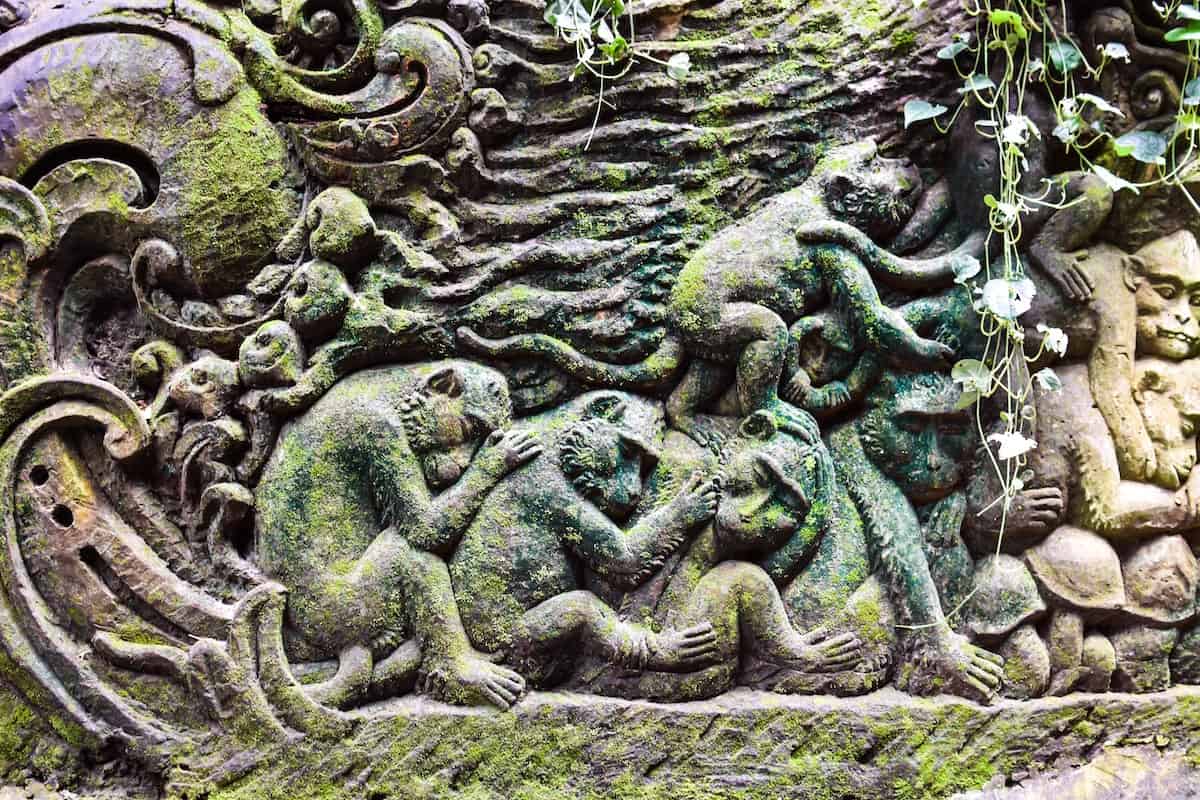
Balinese Long-Tailed Monkeys
There are currently over 900 monkeys living here, though this number continues to grow. There are seven troops, with about 100-150 monkeys in each community. Macaques are omnivores, with their diet consisting mostly of sweet potatoes, banana, papaya leaf, corn, cucumber, coconut, and other local fruit. They are fed three times a day by the park staff, which is one reason they stay in the forest. Males usually live to about 15 years, while females live to 20 years. All of the monkeys roam free and there are no cages in this sanctuary.
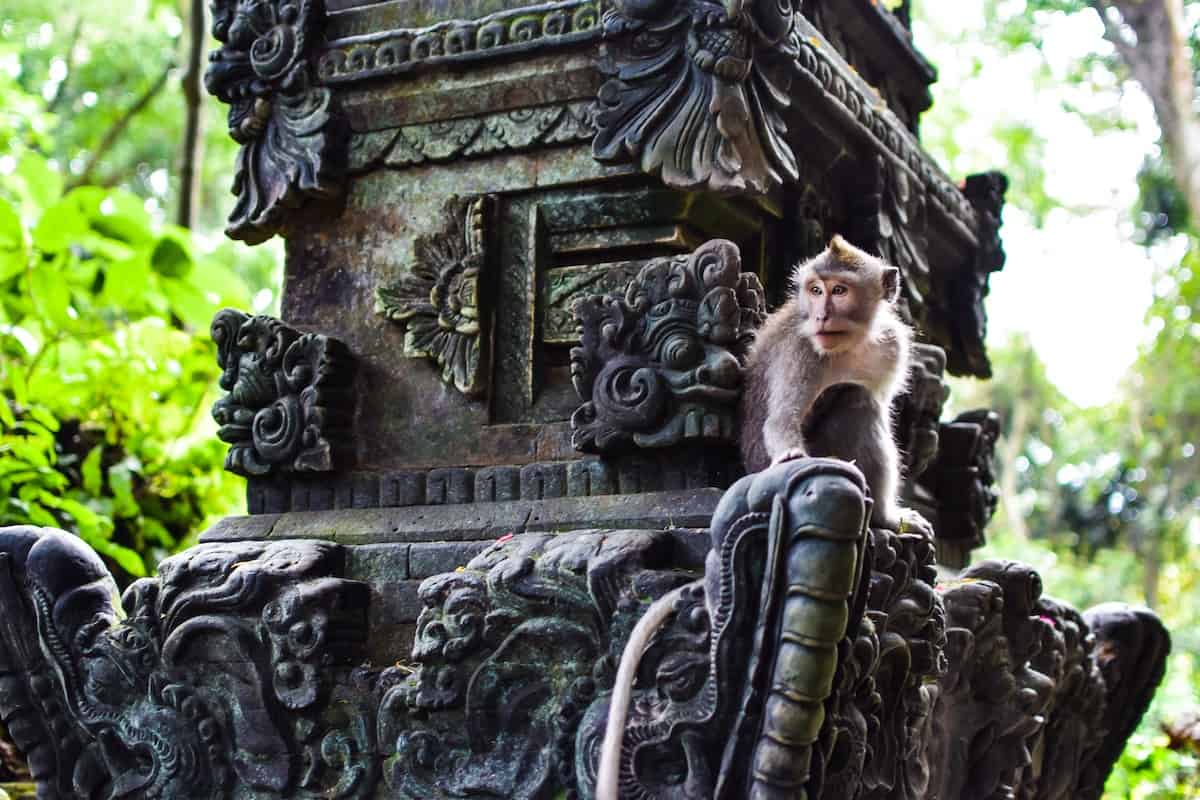
Where is the Ubud Monkey Forest?
The Sacred Monkey Forest Sanctuary is conveniently located right in the middle of Ubud town center. There are two main parallel roads running north to south, the west one being Monkey Forest Street. Monkey Forest sits right at the south end of this road and is walking distance to plenty of cafes, restaurants, bars, and shops.
When to go to Ubud Monkey Forest
Morning time is always an ideal time to go, as the weather is much cooler and more comfortable. They are fed three times a day and if you go towards feeding times, they can be less aggressive, as they’re mostly busy eating.
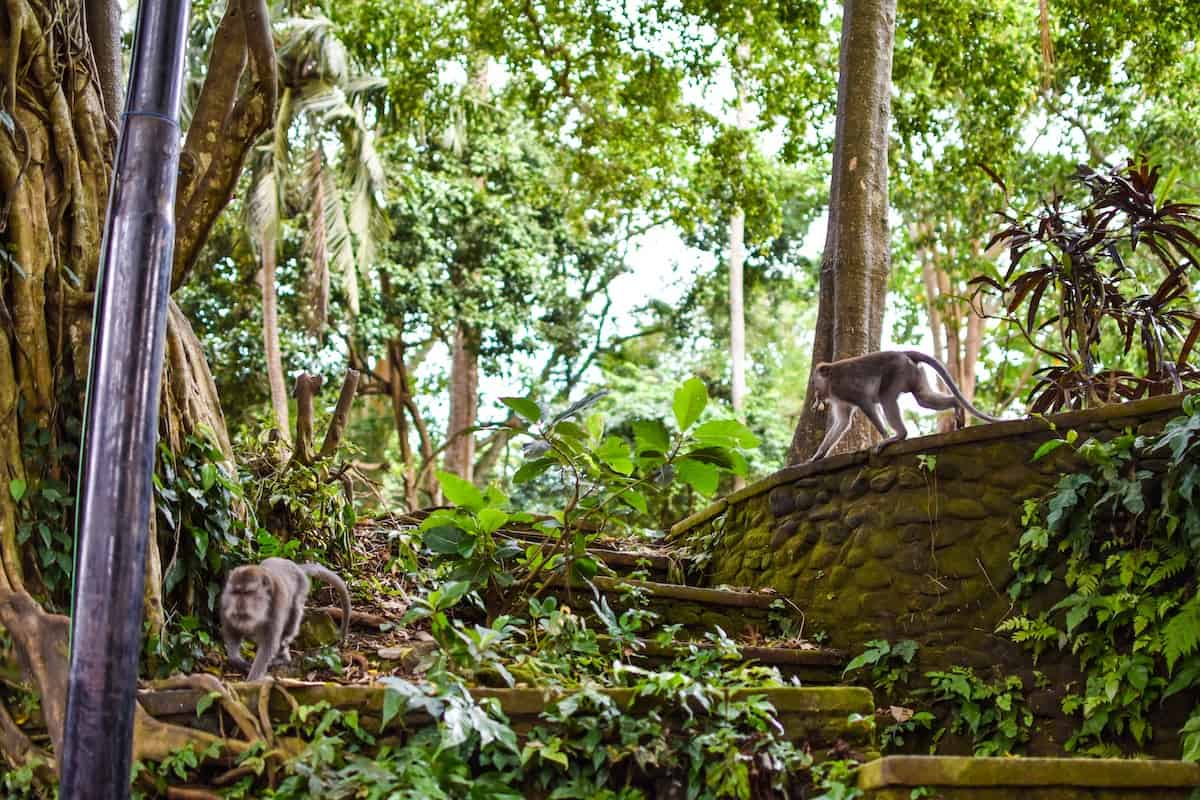
Planning Your Trip to Ubud Monkey Forest
Give yourself at least an hour to walk around the sanctuary. Not only are there adorable monkeys to watch, but it’s a beautiful green space with towering banyan trees, intricately-carved mossy statues, and bridges and creeks that make for perfect photo ops. The entrance fee for adults is IDR 80,000 (~$5.60 USD) and IDR 60,000 (~$4.20 USD) for children (as of June 2019). They are open daily from 8:30 a.m. to 6 p.m. with tickets being sold until 5:30 p.m.
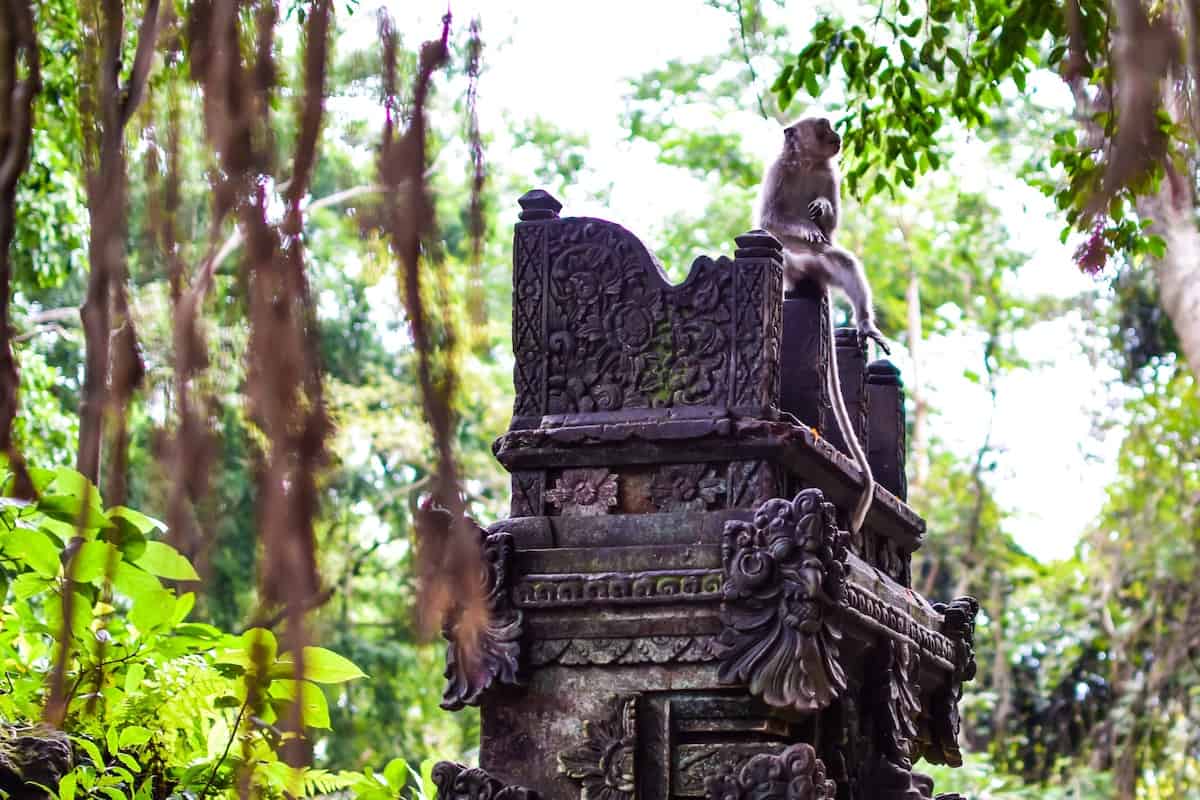
Common Questions:
Are the monkeys dangerous at the Ubud Monkey Forest?
The monkeys here are generally friendly, but are definitely mischievous and can be aggressive in certain situations. If you have food and try to hide it from them, they will search your things until they find it. There are signs around the park advising not to look them in the eye, as this is a sign of aggression. I found that it’s actually quite difficult not to look them in the eyes, and didn’t have any risky encounters. As long as you’re friendly, they will mostly be friendly back. If they climb on you, don’t panic and just gently shoo them off. You can ask the staff for assistance if necessary.
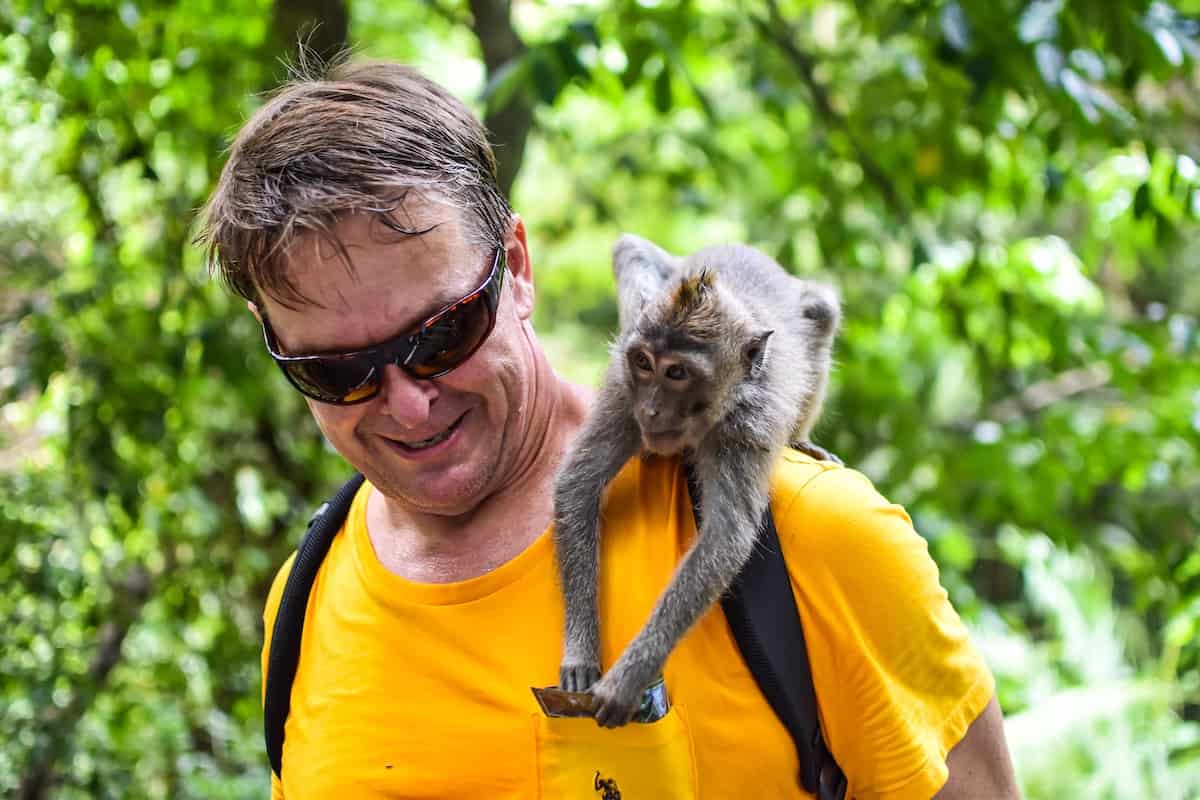
Do the monkeys at Ubud Monkey Forest bite?
In short, yes. The obvious way to avoid this is not to touch the monkeys and if you do, don’t make abrupt movements that the monkeys might perceive as aggression. According to their website, there haven’t been monkeys that tested positive for rabies in a decade and a half. If you get bit, ask the staff for assistance to get cleaned up.
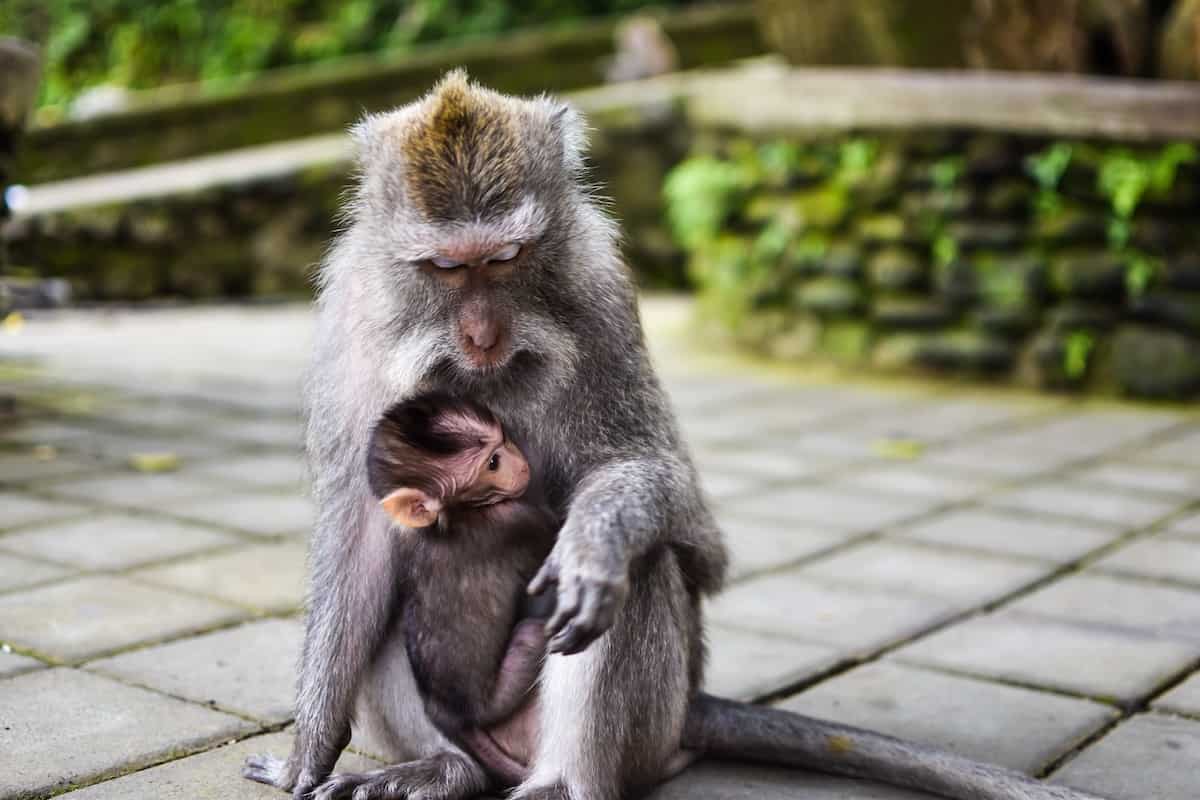
Can you feed the monkeys at Ubud Monkey Forest?
You might still find information online that says you can purchase bananas to feed the monkeys. However, the park no longer allows people to feed the monkeys and you’re not advised to bring in outside food. These monkeys have no fear of humans and will quite literally swarm you if you have any food. We recommend just observing them, rather than trying to coax them with food. They might still come to you and climb all over you because they’re very curious and friendly.
What to wear and what not to wear and carry:
Though there isn’t an enforced dress code, there are temples inside the sanctuary, so dress fairly conservatively (cover your shoulders and knees if possible, but again, it’s not strict). Be sure to empty your pockets and not wear anything too dangly, as these monkeys are super curious and will literally snatch your belongings off of you. They’re particularly drawn to shiny things and they will easily find any food you have in your pockets or bags. If you’re carrying a bag, make sure no outside pockets have valuables and stow your keychains away, along with water bottles. Be wary of your sunglasses, hats, and smart phones, as they might grab them, sometimes using them to barter, in which case you’ll have to give the monkey something they want (food) in order for them to give you back your iPhone (no joke, folks).
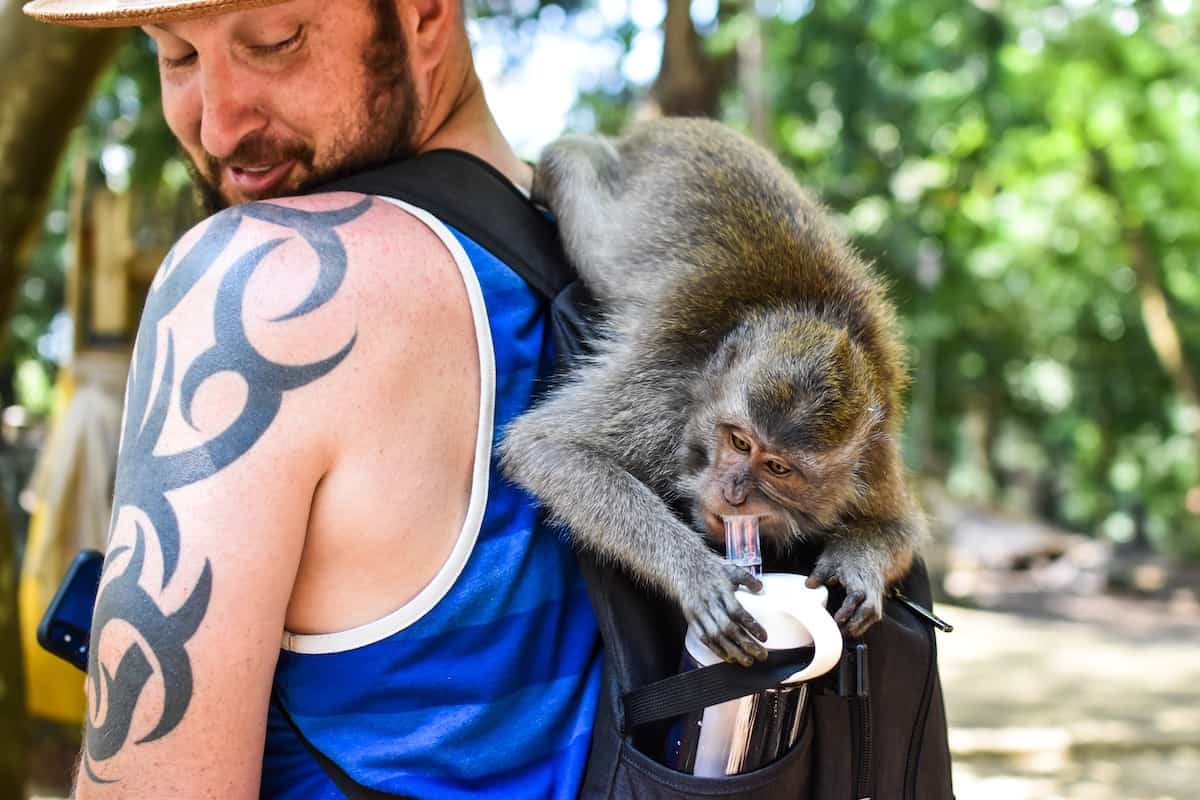
More information about Monkey Forest in Ubud, Bali
Did you enjoy this article the Sacred Monkey Forest in Bali? Are you planning on making a trip there soon and wanting to read more about this beautiful sanctuary? Then check out these other articles we’ve rounded up:
- Sacred Monkey Forest Sanctuary in Ubud, Bali from Journey Era
- How to Visit Ubud Monkey Forest in Bali from Hand Luggage Only
- A History of Ubud Monkey Forest in 60 Seconds by Edira Putri from The Culture Trip
Pin now, read later:
